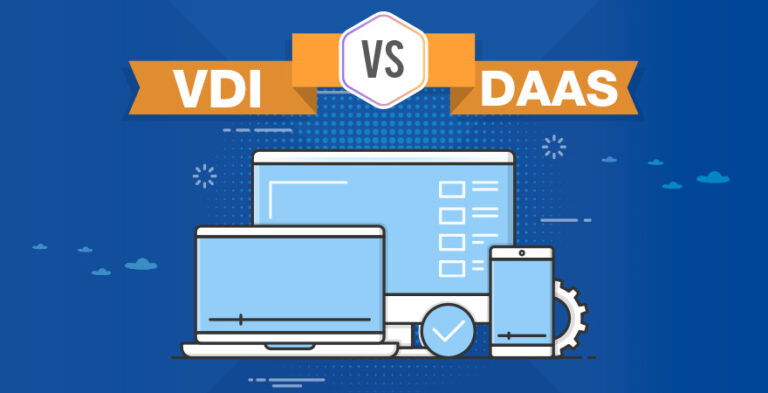How to Protect Your Small Business’s Digital Assets With the Help of Cloud Services
One of the most practical and contemporary methods for companies to keep their digital assets safe and secure is using cloud services. In fact, in 2022, over 90% of all businesses worldwide, regardless of their size, have already adopted a multi-cloud approach, thanks to their excellent capabilities and advantages in preserving valuable digital assets and information.

To further explain them, digital assets are any type of content that exists in several formats, has the potential to be stored digitally, and provides value to the owner. Audio and video files, other forms of digital media, PDFs, and HTML and CSS files are all examples of digital assets that may be saved as individual files.
In this article, we’ll go through and explain six cloud backup solutions for small business operations that you may use to safeguard your digital assets and successfully protect your company’s past, present, and future.
Work With a Reliable Web Host Provider
Choosing the right hosting provider is crucial for keeping your website working at all times, ready for your visitors, and safe from potential threats and intruders. The web hosting service you select should be knowledgeable about possible threats, provide constant technical help when required, and should be committed to keeping your small business safe.
But remember that the site server cannot be held accountable for your structure, extensions, and plugins of unique websites. You cannot entirely rely on your web host for web security. For that reason, many small businesses rely on SEOhosting services. SEO hosting implies hosting several websites with distinct domains and IPs, which makes it appear as if the connections come from worldwide sites, improving search engine rankings and making it harder for potential hackers to harm your website.

Utilize a VPN
This is an internet security solution that guarantees an encrypted connection between user devices and servers. Your company data is protected and eavesdropping is avoided when you connect to a VPN. Anyone without the right decoder cannot see what you are doing online since the information is encrypted over a VPN tunnel and sent through the VPN server.
As a result, no one will be able to view the data being sent between the user device and servers without the decryption key. Businesses can access sensitive digital assets stored via cloud services or even share networks between their various office locations using a VPN.
Here, it’s important to avoid sending traffic containing confidential information to the public internet. Businesses should utilize VPNs, especially if their workers do remote work. When workers work remotely or from home, they frequently connect to the public internet, which is not the case when they are working on company property.
The optimal solution is to utilize a corporate VPN to encrypt such communication to prevent their traffic from being seen by inquisitive eyes. The top VPN services to utilize are covered in greater detail in this post.

Avoid Using a Shared Internet Connection
In many places throughout the world, Wi-Fi public internet connections are easily accessible. Although a VPN might be useful in this situation, businesses that value their digital assets should refrain from using them frequently. The risks are substantial and even outweigh the advantages.
You could be tricked into utilizing a fake Wi-Fi network that a cybercriminal has put up since it is free and hence doesn’t cost you anything. Hackers can spread malware that directly attacks, infects, and destroys the sensitive data you have saved on your devices via the unprotected public internet.
Utilize Data Anonymization
Another option for firms to safeguard their digital assets saved using cloud services is through data anonymization. Simply put, it involves encrypting or deleting identifiers that link a person to stored data to secure sensitive information. There are techniques for data anonymization that you may use to safeguard your digital assets.
Two-Factor Authentication (2FA)
It is not sufficient to employ a username and password to secure access to cloud services where your digital assets are kept. The prevalence of public internet connections and the incidence of cyberattacks make it simple to reveal your account and password. In this situation, two-factor authorization is useful.
You may use it as an extra layer of protection to make sure that simply entering your login and password will not grant access to your cloud services. You will need to give more information to access your services rather than immediately logging in with a username and password.

Even if your username and password are stolen, 2FA makes it impossible for someone to access the location where you saved your digital assets.
Computer Insurance
Think about adopting cyber insurance in addition to the strategies listed above to safeguard your digital assets. Unfortunately, only a small amount of companies are truly aware of this.
In the case that you lose your digital assets, it may serve as a backup. One or more of the costs that cyber insurance can cover is the expense of determining what caused the security breach, taking care of the damages, and retrieving affected data.
Final Thoughts
A lot of cyberattacks occur and due to inadequate security measures, businesses and organizations lose their digital assets stored using cloud services regularly to hackers. With all we covered above, we believe you now have a fundamental understanding of how to secure your small business’ digital assets thanks to cloud computing services and solutions. You may begin using these techniques right now to stave off hackers.







